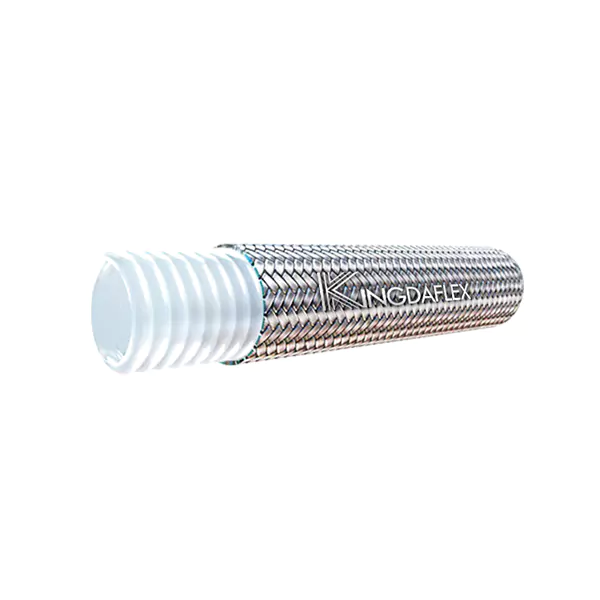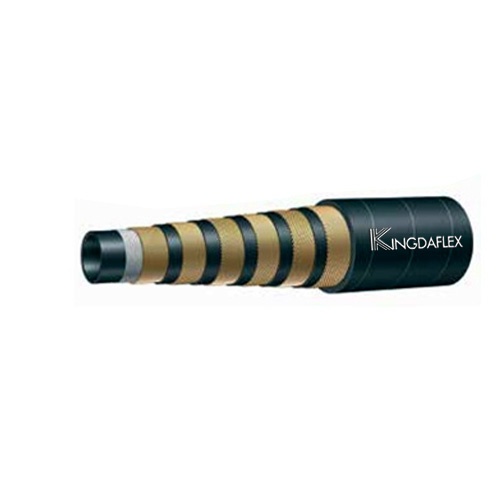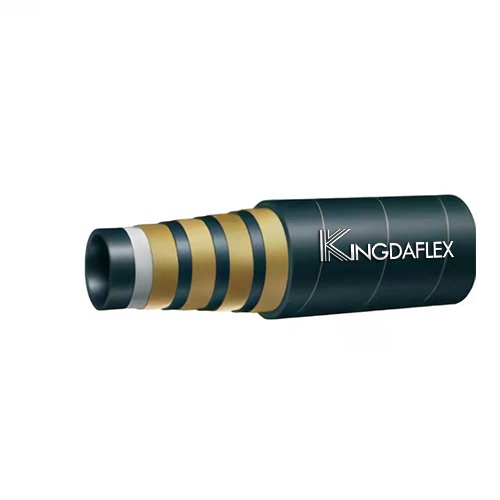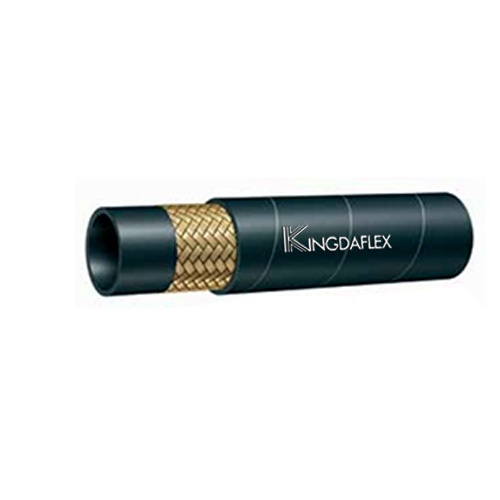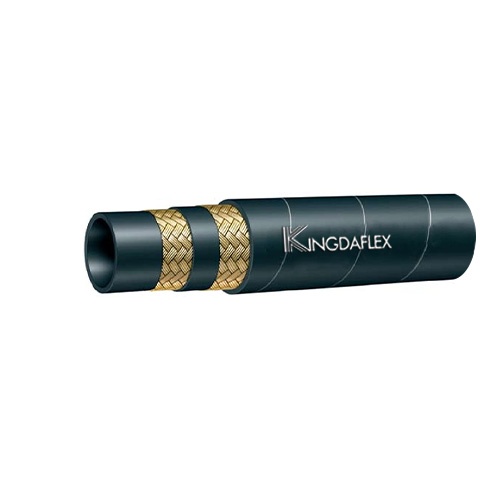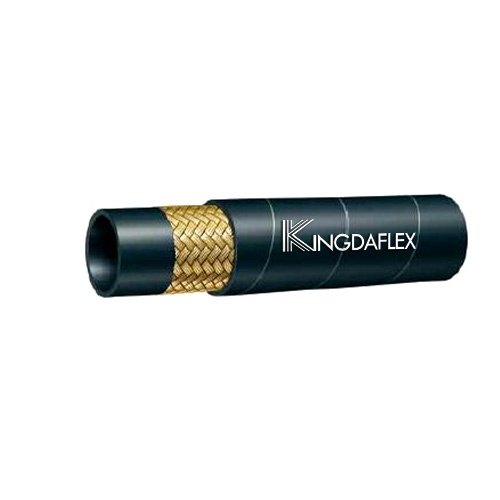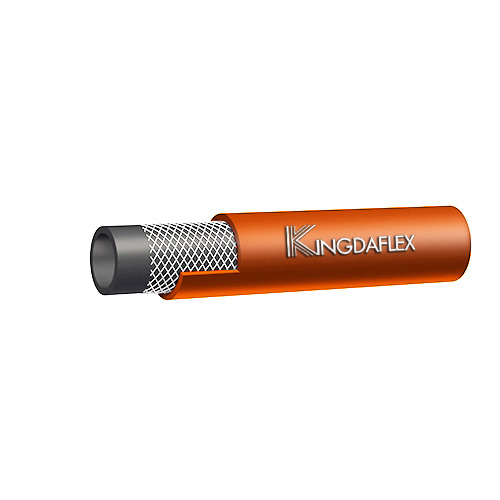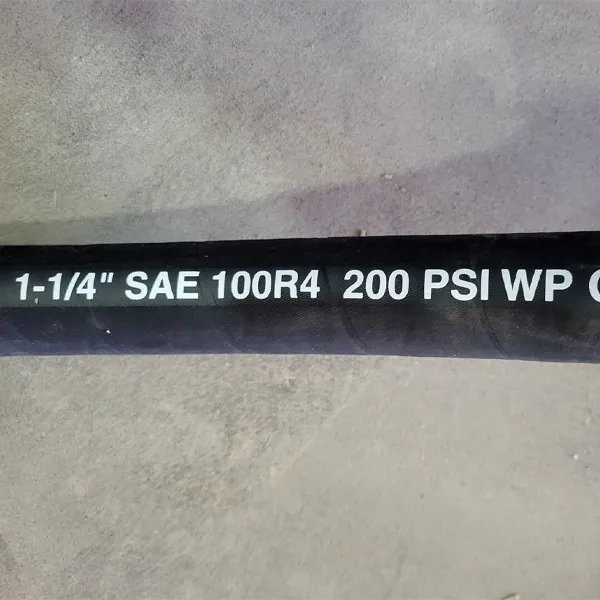The compatibility of hydraulic hoses with gasoline is a critical consideration for safety and performance. Hydraulic hoses are designed to handle specific fluids, and using the wrong type can lead to degradation, leaks, and potentially dangerous situations. Gasoline, being a highly volatile and corrosive substance, requires specialized hoses.
Understanding the material composition and pressure ratings of hydraulic hoses is essential before using them with gasoline. This blog delves into the specifics of hose compatibility, exploring the risks and providing guidance on selecting appropriate hoses for fuel transfer applications.
What is Gasoline
Gasoline, also known as petrol, is a flammable liquid mixture of hydrocarbons. It’s primarily used as a fuel in internal combustion engines. Gasoline is produced through the fractional distillation of crude oil, separating various hydrocarbon components based on their boiling points. The resulting mixture is then blended with additives to enhance its performance, such as octane rating, and reduce emissions.
The chemical composition of gasoline varies, but it typically includes alkanes, alkenes, and aromatic hydrocarbons. These components contribute to gasoline’s high energy density, allowing it to efficiently power engines. However, gasoline is also a volatile substance, posing fire and environmental hazards. Proper storage and handling are crucial to minimize these risks.
What Are Hydraulic Hoses
Hydraulic hoses are flexible, reinforced tubes designed to transport hydraulic fluid under high pressure within a hydraulic system. They serve as the vital link between various components like pumps, valves, and actuators, enabling the transfer of power. Their ability to flex and withstand extreme pressures makes them indispensable in countless applications.
These hoses are engineered to handle demanding conditions, ensuring efficient and reliable fluid transfer. Key characteristics include:
- Fluid Conveyance: They efficiently transport hydraulic fluid throughout the system.
- Pressure Resistance: They are built to withstand the high pressures inherent in hydraulic systems.
- Flexibility: They provide the necessary flexibility for movement and articulation within the system.
- Durability: They are designed to withstand harsh environments, including vibrations, abrasion, and temperature variations.
Can Hydraulic Hose Be Used for Gasoline
No, standard hydraulic hoses should not be used for gasoline.
Hydraulic hoses are primarily designed to transport hydraulic fluids, which have different chemical properties than gasoline. Gasoline is a highly flammable and corrosive substance that can degrade the materials used in typical hydraulic hoses, leading to leaks, hose failure, and potentially dangerous situations.
Here’s why it’s unsafe:
Material Incompatibility:
- Many hydraulic hose materials are not resistant to the chemical composition of gasoline.
- Gasoline can cause the hose’s inner lining to break down, leading to contamination and leaks.
Fire Hazard:
- Gasoline leaks from a degraded hose can create a significant fire hazard.
- Hydraulic hoses may not have the antistatic properties required for gasoline transfer.
Safety Standards:
- Dedicated fuel hoses are designed to meet specific safety standards for gasoline transfer, which hydraulic hoses do not.
- Using the incorrect hose could void safety regulations.
Can Hydraulic Hose Be Used for Natural Gas
Can you use hydraulic hose for gas?
No, standard hydraulic hoses are not designed for use with natural gas. Natural gas has significantly different properties than hydraulic fluids, including its flammability, compressibility, and chemical composition. Using a hydraulic hose for natural gas poses serious safety risks.
Here’s why it’s unsafe:
Material Incompatibility:
- Natural gas can permeate and degrade the materials used in standard hydraulic hoses, leading to leaks and failures.
- The hose’s inner lining can be compromised, potentially releasing gas and causing hazards.
Leakage and Fire Hazard:
- Natural gas leaks are highly flammable and can create explosive atmospheres.
- Hydraulic hoses are not designed to contain the high pressures and volatile nature of natural gas.
Safety Regulations:
- Specific hoses are designed and certified for natural gas applications, meeting stringent safety standards.
- Using a hydraulic hose for natural gas violates safety regulations and poses a significant risk.
What Are Hydraulic Hoses Used For
Hydraulic hoses are specifically engineered to transport hydraulic fluids, which are typically incompressible liquids. They are not designed to handle the unique properties of gases, such as their compressibility and potential for leakage. This fundamental difference in function makes them unsuitable for gas transfer.
Here’s why they fail when used with gases:
Gas Permeation and Leakage:
- Gases, especially those under pressure, can permeate through the hose materials, leading to leaks.
- Hydraulic hoses lack the specialized barriers required to contain highly mobile gas molecules.
Compressibility and Pressure Dynamics:
- Gases are compressible, meaning their volume changes with pressure. This can lead to unpredictable pressure dynamics within a hydraulic hose, potentially causing bursts or failures.
- Hydraulic hoses are designed for the relatively stable pressure environment of incompressible fluids.
Flammability and Safety Risks:
- Many gases, like natural gas or propane, are highly flammable. Leaks from an unsuitable hose can create dangerous fire or explosion hazards.
- Hydraulic hoses do not have the safety certifications or materials to handle flammable gasses.
Corrosive Gas Damage:
- Certain gasses are corrosive, and can degrade the inner linings of hydraulic hoses.
- This degradation can cause hose failure, and contaminate the gas flow.
What Kind of Hose is Safe for Gasoline?
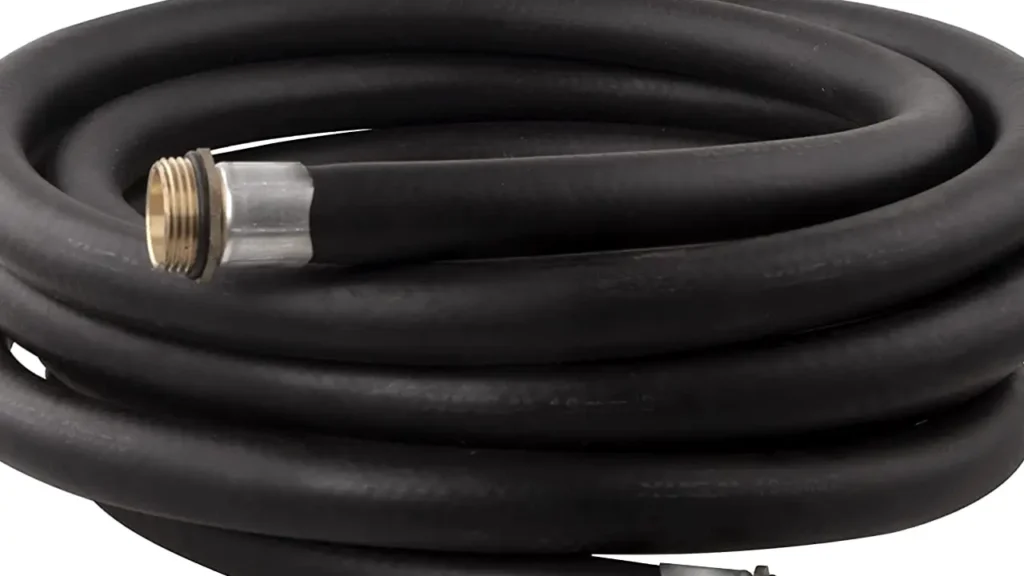
When dealing with gasoline, safety is paramount, and selecting the correct hose is crucial to prevent leaks and potential fire hazards. Not all hoses are created equal, and gasoline’s corrosive nature requires specific materials designed to withstand its chemical properties. Using the wrong type of hose can lead to degradation, leaks, and dangerous situations.
The safest hoses for gasoline are typically made from materials specifically engineered to resist the chemical breakdown caused by fuels. These include nitrile rubber, fluoropolymer (like PTFE), and certain types of thermoplastic. These materials are chosen for their ability to maintain their integrity when exposed to gasoline’s hydrocarbons and additives. Additionally, these hoses often feature reinforcement layers, such as wire braiding, to handle the pressures encountered in fuel transfer applications.
It is essential to ensure that any hose used for gasoline transfer is explicitly rated and certified for fuel applications. Look for hoses that comply with relevant industry standards, such as SAE J30, which specifies requirements for fuel and oil hoses. These certifications guarantee that the hose has undergone rigorous testing and meets the necessary safety criteria. Always consult with hose manufacturers or industry experts to verify the suitability of a hose for gasoline transfer and adhere to all applicable safety regulations.
What is the Difference Between Hydraulic Hose and Gas Hose
Understanding the distinctions between hydraulic and gas hoses is crucial for ensuring safe and efficient fluid transfer in various applications. These hoses are engineered for specific purposes, and using them interchangeably can lead to hazardous situations.
Here are the key differences between the hydraulic hose and gas hose.
Material Composition and Chemical Compatibility
Hydraulic hoses are primarily designed to convey hydraulic fluids, which are typically non-compressible liquids like oils and synthetic fluids. These hoses are often constructed from synthetic rubbers, such as neoprene or nitrile, reinforced with steel wire braids or spirals to withstand high pressures. The materials are chosen for their compatibility with hydraulic fluids, ensuring they don’t degrade or leach harmful substances into the fluid.
Gas hoses, on the other hand, are engineered to transport gases, including flammable ones like natural gas, propane, or gasoline. These hoses require materials that are resistant to the chemical properties of gases, preventing permeation, degradation, and leaks. Common materials include nitrile rubber, thermoplastic, or fluoropolymers like PTFE, which can handle the corrosive nature of certain gases. The material selection is crucial to maintain the hose’s integrity and prevent gas leaks, which can pose significant safety risks.
Pressure Rating and Safety Standards
Hydraulic hoses are built to withstand high pressures, often ranging from several hundred to thousands of pounds per square inch (psi). The reinforcement layers, like steel wire braids or spirals, provide the necessary strength to contain these pressures. Safety standards for hydraulic hoses focus on burst pressure ratings and fluid compatibility, ensuring they can handle the demanding conditions of hydraulic systems.
Gas hoses, while also needing to withstand pressure, have a greater emphasis on preventing gas permeation and leaks. The pressure ratings for gas hoses vary depending on the specific gas and application. They must also comply with stringent safety standards, such as UL or CSA certifications, which ensure they meet the requirements for gas transport. These standards focus on material compatibility, leak prevention, and fire resistance, safeguarding against potential hazards associated with gas leaks and explosions.
Conclusion
Using a standard hydraulic hose for gasoline is highly discouraged due to material incompatibility and safety risks. Hydraulic hoses are designed for hydraulic fluids, not the corrosive and flammable nature of gasoline. This mismatch can lead to hose degradation, leaks, and potential fire hazards. Proper fuel hoses are engineered with materials that withstand gasoline’s properties.
Substituting a hydraulic hose in a gasoline application compromises safety and system integrity. The risk of leaks and failures increases significantly, endangering personnel and equipment. Always adhere to the specific hose requirements for gasoline transfer, ensuring compatibility and safety.
For a wide range of industrial hoses, including those designed for fuel transfer, explore Kingdaflex’s wholesale options. Contact us today to ensure you have the correct, safe, and high-quality hoses for your specific needs.

